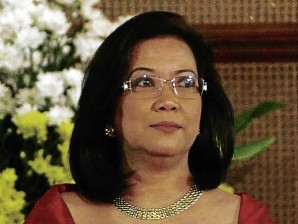Chief Justice Sereno calls for dialogue
Chief Justice Maria Lourdes Sereno on Wednesday vowed to hold a dialogue with members of the judiciary as she prepares to institute the much-needed reforms in the judiciary that had come under fire for some controversial decisions in recent years.
“I therefore ask for help from the Filipino people to give the judiciary room to undertake the process of reflection and to allow the Chief Justice to lead in that process,” Sereno on Wednesday told delegates of the 23rd conference of the Presidents of Law Associations in Asia (Pola) at the Marriott Hotel in Pasay City.
Sereno expressed hope that the dialogue among members of the judiciary would lead to significant changes in governance practices within the judiciary.
SALN disclosure
Addressing the media after delivering her speech, Sereno said she would soon issue a statement on what transpired on her first en banc meeting with the high court justices.
Article continues after this advertisement“That will include disclosures of the SALN (Statement of assets, liabilities and net worth) of the Chief Justice,” she said.
Article continues after this advertisementIn her first en banc session as Chief Justice, Sereno informed the other justices about her plan to fully disclose her SALN since she joined the judiciary as Associate Justice two years ago.
She was supposed to issue that statement the other day. But as of press time, Sereno had not issued the statement.
Integrated Bar of the Philippines president Roan Libarios said Sereno’s move to bare her SALN could “encourage” other high court justices to follow suit.
“If the Chief Justice started it, then the others should also disclose their SALN,” said Libarios, who dismissed as just “intrigues” talks that some justices walked out of the en banc meeting because of Sereno’s remarks about disclosing her SALN.
Libarios also belied reports that Sereno got the second lowest score in the psychological exams given by the Judicial and Bar Council (JBC) to nominees for Chief Justice.
According to Libarios, he got it from JBC members that there was “no problem” in the psychological evaluation of Sereno.
“If there had been a problem, the JBC would have not qualified her,” Libarios told reporters.
In her speech as the Pola confab, Sereno cited several questions that the judiciary should answer, mainly on two points—how the judiciary should define itself “in the increasing demand for transparency” when it should be apolitical as well as the need for it to accept “environmental and technological realities.”
“We, in the judiciary, must watch and respond effectively to these changes taking place,” Sereno said.
Judicial records
For one, she said the judiciary should secure its judicial records considering that the country is prone to disasters, such as “the threat of flooding” which, she stressed, was the “so-called new norm.”
She also called for a paperless court.
“We have to rethink our paper-based system and usher in a judicial system that is less paper dependent. We have to do our share in minimizing amount of trees cut down with more paper demand,” Sereno said.
As this developed, Malacañang on Wednesday backed Sereno’s announcement to shun media interviews and speak to the public in the traditional way—through her rulings.
Dignified silence
“The dignified silence has always been the position taken by the gods of Padre Faura and it has always been stated not only in this country but also in the United States that they are better heard through their decisions,” presidential spokesperson Edwin Lacierda told reporters in Malacañang.
After all, what’s important to the public is how the Supreme Court justices interpret the laws in the rulings that they hand down, Lacierda said in a briefing.
Malacañang also welcomed Sereno’s decision to disclose her SALN from the time she was appointed associate justice in August 2010.
“It was good that Chief Justice Sereno decided to open up her SALN to the public,” Lacierda said.
Lacierda, however, acknowledged that it would be up to the entire court to decide whether to institutionalize this. With a report from TJ Burgonio
